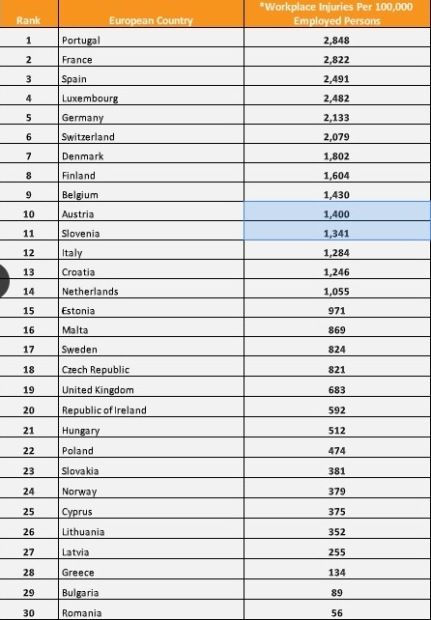News
Denmark among the worst in the EU for workplace injuries
This article is more than 3 years old.
There were 1,802 injuries for every 100,000 employed people in 2019 – the seventh highest figure among 30 central and western European countries

The keyboard strikes again (photo: RTimages/Shutterstock)
Denmark has a poor record for workplace injuries, according to an analysis of 2019 Eurostat data for 30 European countries carried out by Claims.co.uk.
The study revealed there are 1,802 injuries for every 100,000 people working in Denmark, ranking it as the seventh worst country in central and western Europe.
An injury is classified as one sustained at work that causes the employee to miss at least four days of work.
Particularly poor for bone fractures
Denmark ranked particularly highly in two sub-categories, placing fourth for dislocation, sprain, and strain injuries (761 per 100,000) and second for bone fractures injuries (274).
For traumatic amputations (loss of body parts), it ranked 14th with an incidence of 0.4, and for wound and superficial injuries it placed 15th with 237.
“This research shows workplace injuries are certainly more prevalent in some European countries than others,” commented Sasha Quail from Claims.co.uk.
“With that being the case, there are certain actions [see below] workers are recommended to take if they injure themselves in their workplace.”
List topped by Portugal; Ireland and UK perform well
The top six places were filled by Portugal (2,848 injuries per 100,000), France, Spain, Luxembourg, Germany and Switzerland.
Finland, Belgium and Austria completed the top ten.
In contrast, several countries recorded well under 1,000 injuries, including the UK (683) and Ireland (592) in 19th and 20th place respectively.











































